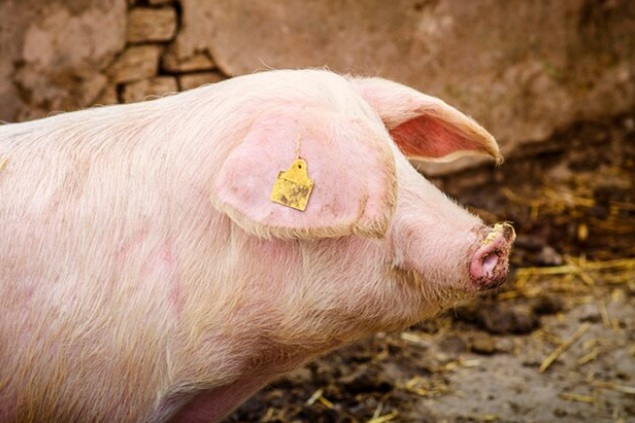1500

As reported by AllAboutFeed, the alternative protein company Moolec Science has created transgenic soybeans, ensuring that a quarter of the protein is more like pork than plants.
Piggy Sooy
The UK-based company, which also creates pea plants containing beef protein, claims that its products will be able to offer nutritional value, taste, and texture similar to meat but at a lower cost than cultured meat.
The company has genetically modified soy plants that have a pink-red hue inside them. According to New Scientist, this likely means that one of the added genes is for a heme-containing protein with iron, such as myoglobin.
Amit Dhingra, Moolec's Chief Science Officer, stated that he can't go into details about which pig genes were added to soy to produce "Piggy Sooy" for intellectual property reasons. This discovery prompted Moolec to file a new patent, using a new approach meant to provide the company with a frictionless regulatory pathway to move forward.
Animal protein reached a high level of expression, up to 26.6% of the total soluble protein in soy, four times higher than initially projected by the company.
"Piggy Sooy is tangible and visual evidence that Moolec's technology has the ability to achieve significant yields in plants for meat proteins," said Gaston Paladini, CEO and co-founder of Moolec.
Achieving a sustainable food chain
"Our plant biology team is writing the history of science in food; I couldn't be prouder of them," Paladini said.
Dhingra mentioned that Piggy Sooy could contribute to increasing the sustainability of the food supply chain: "This achievement sets a precedent for the entire scientific community striving to achieve high levels of protein expression in crops through molecular agriculture.
"We have developed a unique, successful, and patentable platform for the expression of highly valuable proteins in economically important crop seeds such as soybeans.
"This platform has the potential to be used in a wide variety of proteins of interest to a wide range of industries, such as the pharmaceutical industry, cosmetics, diagnostic reagents, and other food industries."
Market potential for plant-based proteins
It is widely believed that bringing proteins closer to what comes from animals can lead to more compelling selling points for consumers - an issue raised by environmental writer Mark Lynas, who believes its environmental merits should be highlighted.
Seren Kell from the Good Food Institute Europe stated that there is strong evidence that consumers would like to see more sustainable alternatives to animal agriculture. Plant-based options have seen a 21% increase in sales in Europe since 2020, she said.
The crossover of animal proteins into the plant-based sphere is a growing trend, along with precision fermentation, in an attempt to reduce the food production footprint. Climax Foods recently introduced a plant-based casein substitute, mimicking the melt and stretch of milk casein.




